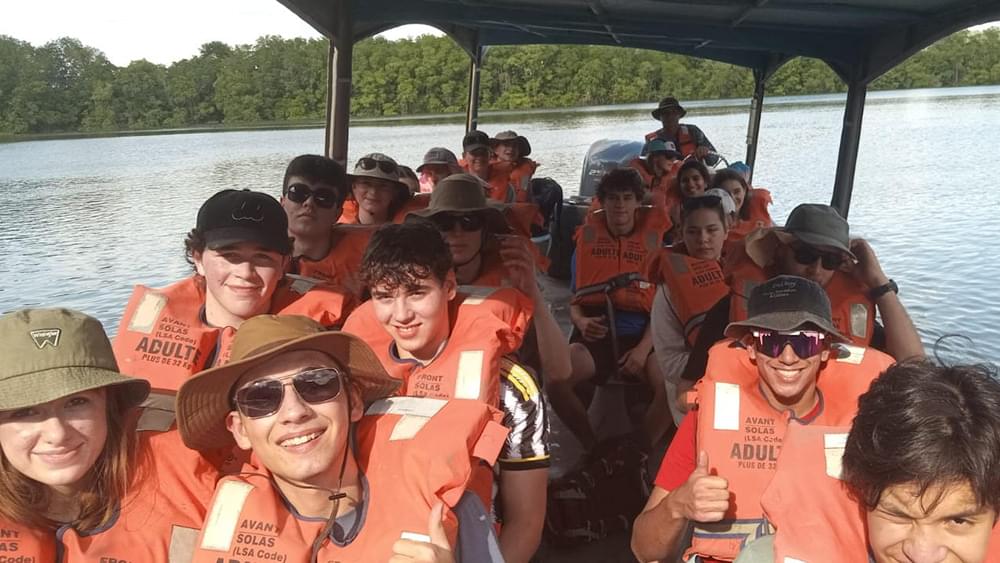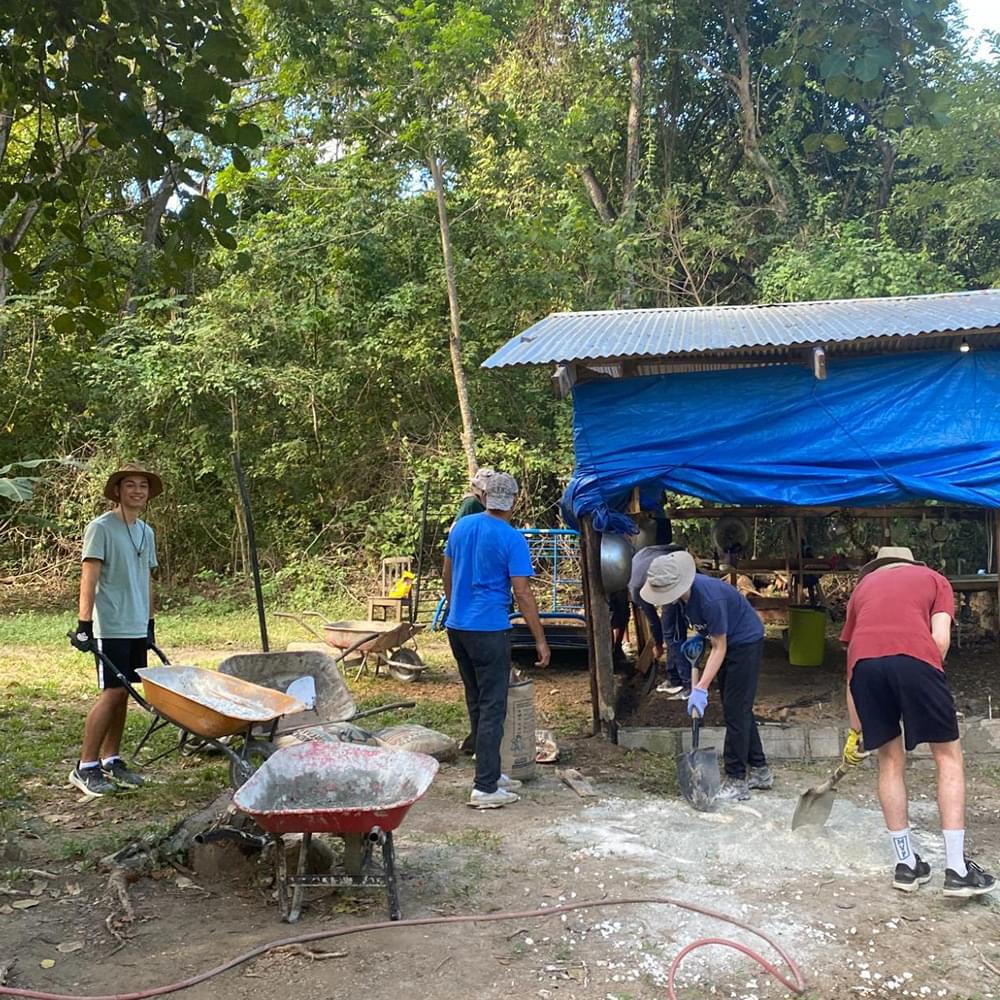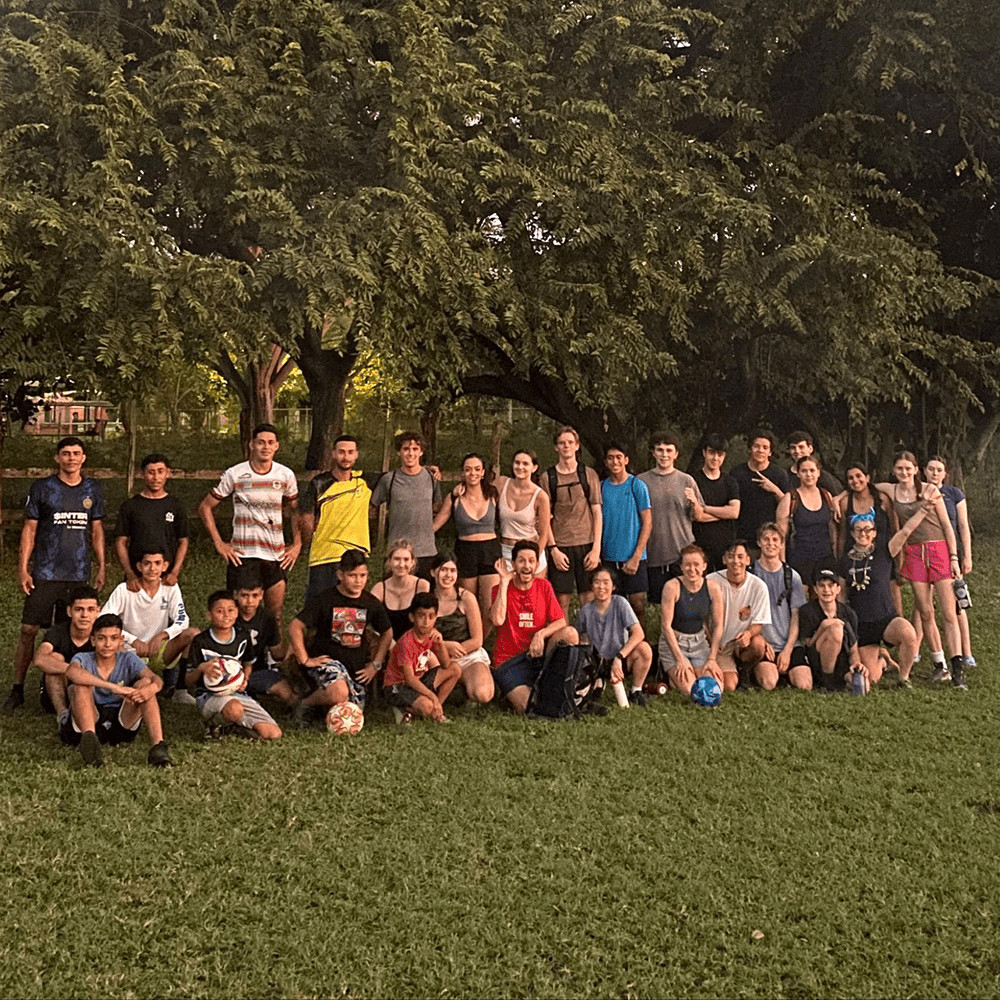In a recent service learning trip to Costa Rica, 20 Grade 11 and 12 students from GNS enjoyed an immersive experience that broadened their understanding of global ecosystems and left a lasting impact on the local community.
For Grade 12 student Charlotte, the trip to Costa Rica was a departure from her usual winter experiences. The contrast in climate was immediate upon landing, with the warmth and humidity signaling the beginning of their 10-day adventure. She added that she and her fellow classmates stuck out like sore thumbs in their Blundstones and other commonly worn Victoria attire.

At the start of the trip, students gave up their phones, an impactful break from technology that allowed Charlotte to fully immerse herself in the experience. “I only thought about my phone to think about how I wasn’t thinking about my phone.”
The students engaged in various service projects, with a large focus on mangrove tree planting.
According to the World Wildlife Fund, Mangroves are a part of a biologically complex coastal forest, regarded as one of the most intricately structured biomes on Earth. Students collaborated with a volunteer organization at their location to help restore this endangered habitat.
GNS Spanish teacher, Señor Reeves, escorted his students on the Costa Rican adventure and he said that a lot of what students learned on the trip directly relates to the curriculum. “Whether it’s global politics, environmental studies or Spanish–there are plenty of opportunities for us to be able to make those real-life connections on trips like these, which is really powerful.”
Teaching students about the importance of integrating with different cultures is high on the list of importance, too, said Reeves.
“Really getting to know what their lived experience is and comparing it to what our lifestyle is like at home is crucial–this is what creates deeper empathy and understanding of other cultures. We are travellers, not tourists.”

Students were especially moved by the mangrove planting because it was really hard work, added Reeves. “A lot of them have never done that kind of physical work before so it was really hard, but also really gratifying.”
Restoring mangrove ecosystems will replenish the area’s shellfish production, which is what the people of that region depend on, Reeves added.
“It was an important experience, I think because it allows us to understand how ecosystems in exotic places that we don’t normally see are still very important for the planet and how much it contributes to the global ecosystem, even if it’s only in a certain area of the world,” said Charlotte.
By participating in replanting efforts, students contributed significantly to a project aiming to plant 2000 trees within a year.
Mitchell, another Grade 12 student, said the volunteer organization that plants the trees was approximately 1000 trees behind schedule because of the impacts of COVID-19. “We planted between 300 to 500 trees,” he said. “It felt really good when we were done and it felt like we accomplished something big because we were able to help them catch up.”
Students also participated in a beach clean-up that revealed the alarming amount of garbage that can threaten local wildlife, especially turtles. Mitchell’s newfound interest in marine biology was sparked by the experiences related to turtle conservation during the trip.
Joshua, also in Grade 12, was initially sceptical about spending extended periods with his peers yet found the experience surprisingly positive. Engaging in hands-on work, such as laying the foundation for a new kitchen, offered him a valuable life experience that he won’t forget.
“I also just had a lot more time to think,” he added. “This trip gave me a lot of time to clear my mind.”
The collective efforts on this memorable trip contributed to environmental conservation and reinforced the notion that these students have a place in shaping a more sustainable planet while they plan for their futures outside of GNS.





